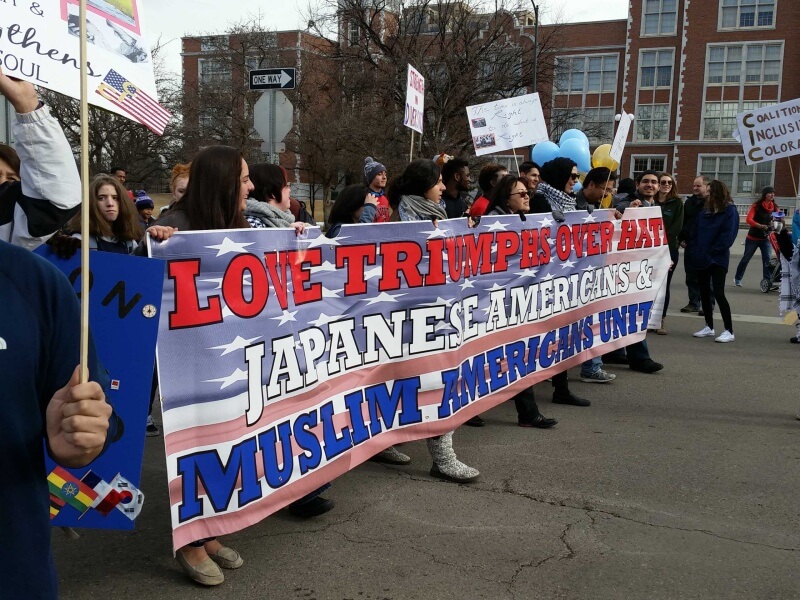
Late last year, Erin and I were lucky enough to travel to New York City to see the Broadway musical “Allegiance” starring George Takei. It’s a story about the incarceration of Japanese Americans during World War II, and it vividly and powerfully brings to life the emotional toll of the experience on JAs for generations since then. I wrote about the play and interviewed Takei and others for AARP’s AAPI Community.
Two nights after attending the show and while we were still in New York, the Paris attacks happened. The next day, we had scheduled a visit to the 9/11 Memorial and museum in lower Manhattan. Like the way “Allegiance” evoked the racial hatred against my community 75 years ago, it was a powerful reminder of the tragedy of Sept. 11, 2001. There’s a lot in the museum exhibit about the terrorists who committed the acts, and the aftermath that included hate crimes, not just against Arab Americans but also Sikh Americans. I saw a photo of the slogan that someone put up on a banner in the Ground Zero site: “United We Stand.”
The rest of the day, I was haunted by the 1970 hit song, “United We Stand” by a group called the Brotherhood of Man: “United we stand, divided we fall; And if our backs should ever be against the wall; We’ll be together, together, you and I…”
The song was widely played in the days after 9/11, though most people probably missed the spirit of uniting with Arab Americans and Muslim Americans.
I was proud that JACL, the Japanese American Citizens League, held a press conference within days after 9/11 to decry violence against Arab Americans. We were the first voices nationally to warn against racial profiling in the wake of the attack, because we knew too well the potential disaster that can be sparked by fear and ignorance.
Unfortunately, there were hate crimes committed in the wake of the 9/11 tragedy, including against Sikh Americans, who aren’t even Muslim. And some commentators supported rounding up Arab Americans into concentration camps just like the Japanese Americans during WWII.
Sadly, the hatred and fear that was aimed back then at Arab Americans, Muslims, Sikhs, South Asians and anyone who might represent “the Other” are back.
Continue reading












